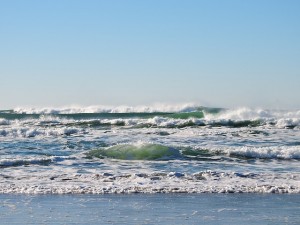Homeowners who have the pleasure of living on the coast are the envy of many. However, there are a few downsides to being in close proximity to the ocean — including the fact that salt air is a major source of harm to air conditioners.
Is Your Air Conditioner Suffering from Salt Exposure?
It is unfortunate, but the fact of the matter is that salt exposure significantly reduces the lifespan of A/C units, thus speeding up replacement intervals and ultimately costing homeowners more in the long run. Salt is naturally corrosive and is notorious for eroding metal condenser coils. Over time and with enough exposure, the coils will turn into powder and become virtually useless. What typically happens next is premature system failure and an emergency call to the first available heating and cooling contractor.
Despite the fact that most modern air conditioner parts are comprised of metals that are coated in anti-corrosive coverings like aluminum oxide, the chemical reaction between these materials and salt’s chloride still leads to destruction. Chloride counters aluminum oxide’s defense mechanisms and forms corrosive pockets, a process referred to as pitting. Pitting is far worse in areas with high temperature and humidity levels.
The solution to this potential nightmare is actually pretty simple. As long as you remember to rinse your air conditioner’s condenser coils with water on a regular basis, say once per day, the effects of salt exposure will be kept to a minimum. Alternately, you can choose to apply a specialized coating that will work as an added layer of defense.
Luckily, there is no shortage of anti-corrosive products available to homeowners in need, namely because the issue is so prevalent in coastal regions. Be sure to choose a coating that is non-flammable and water-based. Unless you want to spend thousands in A/C replacements every few years, you have no choice but to perform one or both of these simple maintenance procedures!
Image source: Wikimedia Commons




